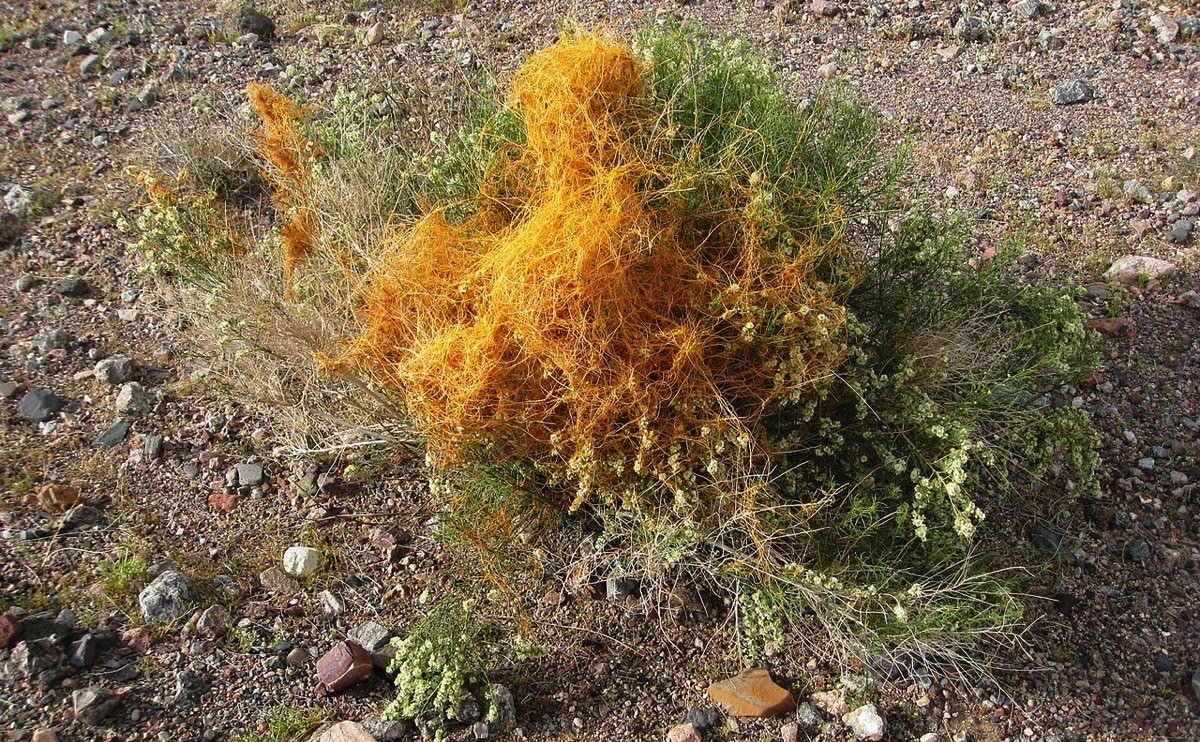Why are some plants parasites? And how can we stop them?

When we think about parasites in the agricultural world, it’s insects that come to mind: weevils, beetles, locusts and worms, especially. But there are hundreds of species of plants that are also classified as parasites. Parasitic plants can strangle the nutrients out of crops, steal soil real estate, and attack just as efficiently as any insect. Scientists have been attempting for many years to figure out how to fight parasitic plants, but it’s a thorny problem: Parasitic plants have a very complex relationship with their host plants, and separating the two is no easy task.
The researchers tried to figure out how the witchweed knows that cereal crops are nearby, and found that plants are much smarter and more intricate than you might expect.
New research from an international team of scientists (but led by the University of Georgia and published in the journal Science) goes at it from the root of the problem, pun absolutely intended: The team wanted to suss out the specific relationship of the parasite to host plant, and see if learning more might yield new insight into how to fight the parasite.
The new research focuses on certain types of parasitic plants, like witchweed, a parasite of important cereal crops in Africa and Asia. Witchweed’s seeds often sit in the ground for years, up to a decade, waiting for a host plant (like corn or wheat or rice) to be planted nearby, at which point it germinates. The researchers tried to figure out how the witchweed knows that cereal crops are nearby, and found that plants are much smarter and more intricate than you might expect.
It turns out that crops tend to release hormones, called strigolactones, into the soil, which act as kind of a beacon to beneficial fungi nearby. The two trade nutrients: The fungi release nutrients the plant needs, the plant digests them and releases nutrients the fungi needs, and the cycle is beneficial for both. But witchweed and other parasitic plants can sense the strigolactones as well. It’s like leaving a door open for your neighbor to feed your pet, and simultaneously allowing a burglar to come in through the same route.
Even weirder, the researchers figured out exactly how this strigolactones-detecting ability evolved. It is, they say, an evolution of the parasitic plant’s detection of smoke and fire. When fire destroys ground cover, it leaves room and nice, healthy ash for some plants to grow in their place. The parasitic plants may have developed an ability to sense other plants as a method to know when to grow, but that ability eventually turned to parasitism.
The researchers think understanding how and why a parasitic plant can sense a host could allow for new ways to fight them. Synthetic chemicals could interfere with the parasite’s ability to detect strigolactones – it wouldn’t kill the plant, but merely stop it from germinating, which could be a far cheaper and more efficient way to fight them than by drenching crops in pesticides.